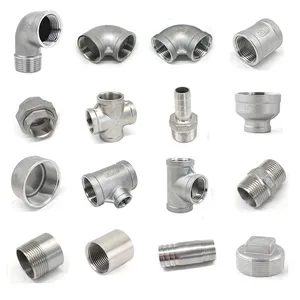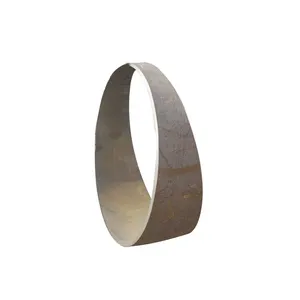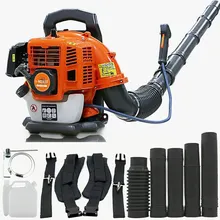What are Plumbing Materials Guide
Plumbing materials are essential components used in the construction and maintenance of water systems, including pipes, valves, fittings, and fixtures that convey water and other fluids for various purposes. These materials cater to a wide range of users, from plumbers and builders to DIY enthusiasts and homeowners looking to undertake repairs or installations. The selection of plumbing materials is influenced by factors such as the type of fluid being conveyed, pressure and temperature conditions, as well as the method of connection or jointing required.
The principle of how plumbing materials work is relatively straightforward: pipes facilitate the movement of water under pressure, while valves control the flow, allowing it to be turned on or off. Fittings such as couplings and elbows are used to change the direction of flow or to connect different parts of the plumbing system together. Fixtures including faucets and toilets are designed to regulate the flow of water and provide user interface for control.
Plumbing materials must be durable, resistant to corrosion, and capable of maintaining their structural integrity under varying temperatures and pressures. The materials used in plumbing must also meet safety standards, especially when dealing with potable water systems. For non-potable applications, the focus is more on structural strength and the ability to withstand chemical interactions with the fluids they convey.
Types of Plumbing Materials Guide
The plumbing system is a crucial part of any building's infrastructure, and it's essential that each component is carefully selected with its specific application in mind. Here's an overview of some common types of plumbing materials:
-
Copper: Known for its durability and resistance to corrosion, copper is widely used in plumbing for both domestic and commercial applications. It's commonly found in the construction of water supply and drainage systems due to its long lifespan.
-
PVC (Polyvinyl Chloride): PVC is a versatile plastic that's often used in the construction industry for both water supply and drainage systems. It's known for its ease of installation and is widely used in household plumbing.
-
PEX (Cross-linked Polyethylene): PEX is a flexible alternative to traditional rigid piping that's used for both residential and commercial applications. It's particularly favored for its ability to resist high temperatures and for its long service life.
-
PPR (Polypropylene Random Copolymer): PPR is a modern alternative to metal pipes that offers excellent heat and chemical resistance. It's often used in hot and cold water supply lines as well as in the installation of sanitary pipes.
-
HDPE (High-Density Polyethylene): As one of the most popular choices for outdoor and buried applications, HDPE is a high-density polyethylene that is known for its flexibility and high resistance to fatigue and most chemicals.
How to choose Plumbing Materials Guide
Choosing the right plumbing materials is critical for ensuring system performance, longevity, and compliance with safety standards. When selecting materials for commercial plumbing projects, businesses must consider factors such as material properties, application requirements, and environmental considerations.
For businesses involved in large-scale construction projects or those specializing in commercial properties like hotels or office buildings, durability and corrosion resistance are paramount. In such cases, opting for materials like stainless steel or copper can offer both aesthetic appeal and functional longevity.
When selecting materials for specific applications such as drinking water systems or medical gas delivery systems, one must also consider health and safety regulations that apply to those contexts. In these scenarios, ensuring that chosen materials meet industry standards for safety and quality is essential.
Furthermore, businesses should take into account whether the plumbing materials will be used in aboveground or underground applications. Different types of piping systems may be more suited for one environment over another; for instance, aboveground piping might require different specifications compared to underground systems.
Lastly, businesses should consider sustainability practices and cost-efficiency. Eco-friendly options might be more expensive upfront but can offer long-term savings through reduced water usage and lower maintenance costs.
About Plumbing Materials Guide on Alibaba.com
Alibaba.com stands out as an indispensable resource for businesses seeking a comprehensive selection of plumbing materials. With its expansive network of suppliers offering a wide range of products tailored to various applications within the plumbing industry, Alibaba.com facilitates efficient procurement processes for businesses around the globe. The platform's commitment to connecting buyers with reputable suppliers ensures that businesses can source materials with confidence in their quality and reliability.
The platform's user-friendly interface simplifies the search for specific types of plumbing materials by allowing buyers to filter products based on material composition, application suitability, color preferences, and more. This targeted approach streamlines the selection process by enabling businesses to focus on products that meet their exact specifications rather than sorting through irrelevant options.
Moreover, Alibaba.com's Trade Assurance service provides an added layer of security by protecting payments up until delivery completion. This assurance is essential for businesses making significant investments in their operations or resale inventory. By leveraging Alibaba.com's global capabilities and robust supplier network, businesses can efficiently source high-quality plumbing materials while benefiting from competitive wholesale pricing without compromising on service quality or product variety.
Common FAQs for Plumbing Materials Guide
What are the essential plumbing materials for a new construction project?
For new construction, essential plumbing materials typically include copper pipes for water supply lines and PVC or PEX for waste and vent systems. Stainless steel is also crucial for its durability and corrosion resistance.
How do I determine the right type of piping material for my business's plumbing needs?
To determine the right piping material, consider the application's pressure, temperature, required flexibility, and the presence of corrosive or non-corrosive materials. Copper is known for its longevity and reliability in water supply, while PVC and PEX are preferred for waste systems.
What is the difference between copper and PEX piping?
Copper piping is valued for its longevity and ability to withstand high pressure, making it suitable for both water supply and waste disposal. PEX piping, on the other hand, is lauded for its flexibility and ease of installation, making it a good choice for a variety of plumbing applications.
Can I use PVC pipes for both inside and outside applications?
Yes, PVC pipes can be used for both inside and outside applications. However, it's important to select the appropriate type of PVC pipe that is rated for the conditions it will be exposed to.
Are there specific types of fittings for different plumbing systems?
Yes, there are specific types of fittings designed for different plumbing systems such as water supply, waste, vent, and gas systems. It's important to match the fitting to the type of system you are working with to ensure a proper seal and functionality.
What should I look for in a water supply line?
When choosing a water supply line, look for materials that are durable, resistant to corrosion, and able to maintain water quality. Copper and stainless steel are popular choices for water supply lines due to their longevity and performance.
How do I ensure compatibility between the plumbing materials and the system requirements?
To ensure compatibility, compare the specifications of the plumbing materials with the system requirements. This includes checking that fittings match the size and type of pipes they are intended to connect with.
What considerations should be made when choosing a drain waste system?
When selecting a drain waste system, consider the material's resistance to corrosion, ease of cleaning, and compatibility with other plumbing components. A variety of materials are available including plastic, stainless steel, and specialized alloys.
Can I find eco-friendly plumbing materials for my business?
While traditional plumbing materials like copper and stainless steel are not typically marketed as eco-friendly, there are alternatives such as PEX which is a type of polyethylene that can be more sustainable and recyclable. Always check with suppliers about the eco-friendliness of their products.
Is it possible to get custom-sized plumbing materials for specific projects?
Many suppliers offer custom-sized plumbing materials or the ability to cut pipes to fit specific project requirements. It's recommended to inquire directly with suppliers about their capabilities to meet custom sizing needs.
How does pressure rating affect my choice in plumbing materials?
The pressure rating of a material indicates the maximum pressure it can handle. It's crucial to choose materials with an appropriate pressure rating for your application to avoid system failures or safety issues.
What are some common uses for flanges in plumbing?
Flanges are commonly used to connect sections of pipe together and provide anchoring points for plumbing systems. They are essential in high-pressure applications where reinforced connections are needed.











































 浙公网安备 33010002000092号
浙公网安备 33010002000092号 浙B2-20120091-4
浙B2-20120091-4